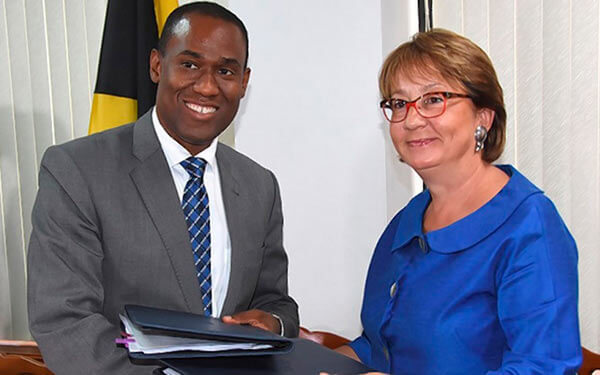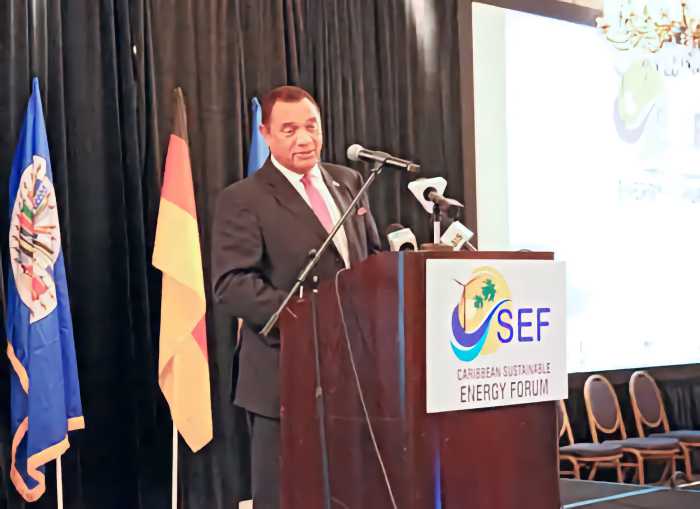The World Bank has signed a multi-million dollar grant to aid climate-resilient practices in the fisheries sector in Jamaica.
The Washington-based financial institution said Dr. Nigel Clarke, Jamaica’s minister of Finance & the Public Service, and World Bank Country Manager Jamaica Galina Sotirova signed the US$4.875 million grant on Wednesday, March 28 “to help highly vulnerable fishing and fish farming communities in Jamaica to adopt climate-resilient practices.
The World Bank noted that about 90 percent of Jamaica’s gross domestic product (GDP) is generated in coastal areas and that both fisheries and tourism are a major source of the country’s revenue.
Both industries are “largely affected by environmental pollution, overfishing, as well as the impacts of climate change and warming of the ocean,” the World Bank said, adding that an estimated 50,000 people are engaged in fishing activities.
It said aquaculture directly employs between 800 to 1,000 Jamaicans.
“This project will be key to putting in place effective measures to protect the marine and coastal resources, build resilience to climate change and promote livelihoods in the most vulnerable fishing communities of the country,” Sotirova said.
“The Caribbean Sea’s ecosystems and natural resources represent a unique asset for Jamaica,” she added. “By helping the fishing communities protect and better manage this ‘natural capital’ asset, we hope to promote the blue economy and foster sustainable growth in the country.”
Clarke said that the project is “aligned with the government of Jamaica’s 2030 development goals and the 2015 National Fisheries and Agriculture Policy,” adding that the government is “committed to ending poverty in Jamaica and providing prosperity for all by supporting communities most vulnerable to climate change.”
“This is a government which believes in partnership, and we thank the World Bank for its partnership over the past 55 years,” he said.
Noting that the fishing industry plays a “critical role” in the Jamaican economy, Clarke said the industry was “particularly susceptible to the vagaries of climate change, and the project was specifically designed to support fisherfolk and fishing communities with little or no engagement in other economic activity.”
Specifically, the World Bank said the “Promoting Community-based Climate Resilience in the Fisheries Sector” project will “strengthen the fisheries policy and regulatory framework for climate resilient fisheries and aquaculture management and build capacity to promote sustainable fisheries management.”
The project will also support fishing and fish farming communities adopt climate-resilient aquaculture, coastal mari-culture/poly-culture, “and diversify their livelihoods and raise awareness on climate change impacts on the fisheries sector,” the bank said.



























